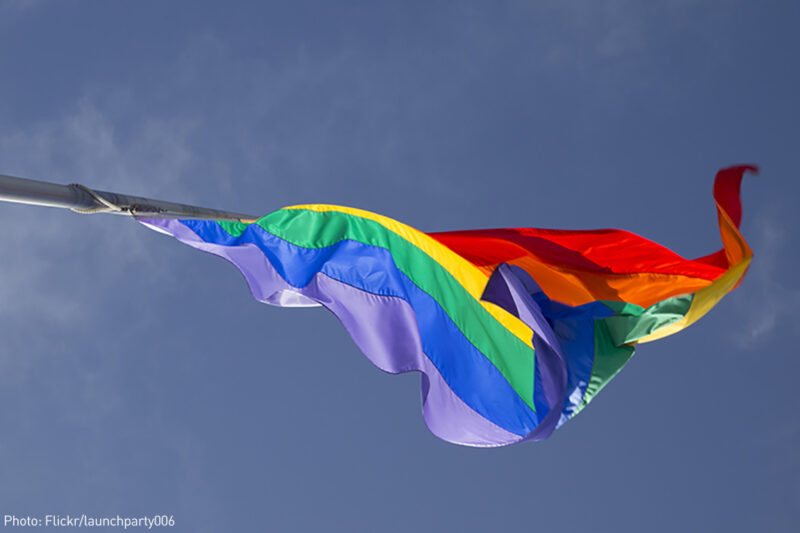
Apparently the most urgent need in the state of North Carolina involves stopping transgender people from using bathrooms.
For North Carolina lawmakers, the urgency was so great that they felt compelled to call a special legislative session — costing taxpayers’ $42,000 a day — to pass the most sweeping piece of anti-LGBT legislation in history, which Gov. Pat McCrory signed the same day.
The reason for this extreme and unusual action by state lawmakers: The city of Charlotte dared to pass a nondiscrimination ordinance that extended legal protections to LGBT people. Though the ordinance did many things, it was dubbed the “bathroom ordinance” by opponents who falsely claimed that protecting transgender people from discrimination would somehow threaten the privacy and safety of others. But in actuality, it’s a myth that has instead served to justify and perpetuate violence against the transgender community for years.
Animated by this distorted rhetoric about privacy and safety, state lawmakers moved HB2 through the state legislature swiftly. After he signed the legislation, Gov. McCrory disingenuously proclaimed it necessary to prevent “men from using women’s bathrooms.”
In addition to repealing the Charlotte ordinance, North Carolina’s new, hateful measure also:
- Forces transgender students to use bathrooms and locker rooms that accord with the gender listed on their birth certificate, whether or not that matches how they identify
- Forces transgender individuals to use bathrooms and locker rooms in any government building, including public universities and colleges, that accord with the gender listed on their birth certificate, whether or not that matches how they identify
- Prohibits local governments from passing LGBT-inclusive non-discrimination protections
It is a dangerous law and a disgrace. It is also unconstitutional. And today, we are suing to strike it down.
Nothing about Charlotte’s nondiscrimination law or any other law or policy in North Carolina would have allowed men into women’s restrooms. As The New York Times explained on Friday: “That threat exists only in the imagination of bigots.”
This imagined threat, however, is what prompted Gov. McCrory to become, as the Charlotte Observer wrote, “a 21st century governor who joined a short, tragic list of 20th century governors. You know at least some of these names, probably: Wallace, Faubus, Barnett.”
The law is intolerable and puts the most vulnerable among us at risk of discrimination, harassment, and violence. But as I wrote to lawmakers last week when this law passed:
“Whether through our families by blood or by choice, [trans people] have community. We will not be forgotten and the reverberations of your actions, lawmakers, will be felt and responded to with vigorous reminders that you are on the wrong side of history. And perhaps someday you will realize that someone you love was harmed by your ignorance and your inability to see our beautiful and common humanity and maybe then you will regret your vote.
Until then, I care less about you, hateful lawmaker, and more about my beautiful community. You are all loved and I will never stop fighting for you.”
Today, the ACLU, Lambda Legal, and Equality North Carolina are fighting in court for the trans folks who have been targeted relentlessly in North Carolina and for the entire LGBT community who is harmed by this regressive and discriminatory law.
This is just one tool among many to counter the horrible rhetoric that has led to the passage of this law and the introduction of many others in state legislatures across the country. Unless and until we embrace the humanity of our trans community members, we will continue to see this hateful rhetoric and legislation.
In court, on the streets, in schools, and across the country, we will be saying, “Enough is enough.”
Onward.


